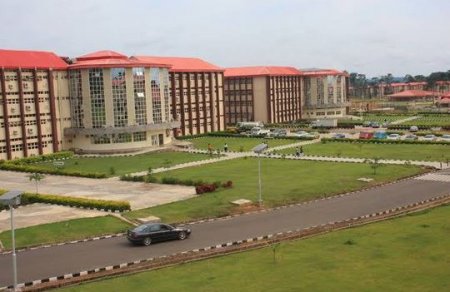M
mrsam
Guest
Afe Babalola University established in 2009 is reportedly the second best private university in Nigeria in 2013.
Afe Babalola University, Ado Ekiti, (ABUAD) is one of the few private universities in Nigeria that are neither owned nor controlled by Church or Islamic groups.
It was established in 2009 by a renowned lawyer and former Vice-Chancellor of the University of Lagos, Afe Babalola.
Just four years after its establishment, the university was ranked the second best private university in Nigeria in 2013.
However, while the university has a lofty profile that attracts admission seekers to make it their choice tertiary institution, there are certain pieces of information you've probably never heard about ABUAD.
Here are seven shocking facts about this school as stated on the university website.
1. Highest employer of Labour in Ekiti State
Afe Babalola University prides itself as the highest private employer of labour in Ekiti State. This is because apart from employing academic and non-academic staff in the state, the institution also has 1000 hectares of land dedicated to cultivation of grains.

READ MORE HERE
Afe Babalola University, Ado Ekiti, (ABUAD) is one of the few private universities in Nigeria that are neither owned nor controlled by Church or Islamic groups.
It was established in 2009 by a renowned lawyer and former Vice-Chancellor of the University of Lagos, Afe Babalola.
Just four years after its establishment, the university was ranked the second best private university in Nigeria in 2013.
However, while the university has a lofty profile that attracts admission seekers to make it their choice tertiary institution, there are certain pieces of information you've probably never heard about ABUAD.
Here are seven shocking facts about this school as stated on the university website.
1. Highest employer of Labour in Ekiti State
Afe Babalola University prides itself as the highest private employer of labour in Ekiti State. This is because apart from employing academic and non-academic staff in the state, the institution also has 1000 hectares of land dedicated to cultivation of grains.

READ MORE HERE

